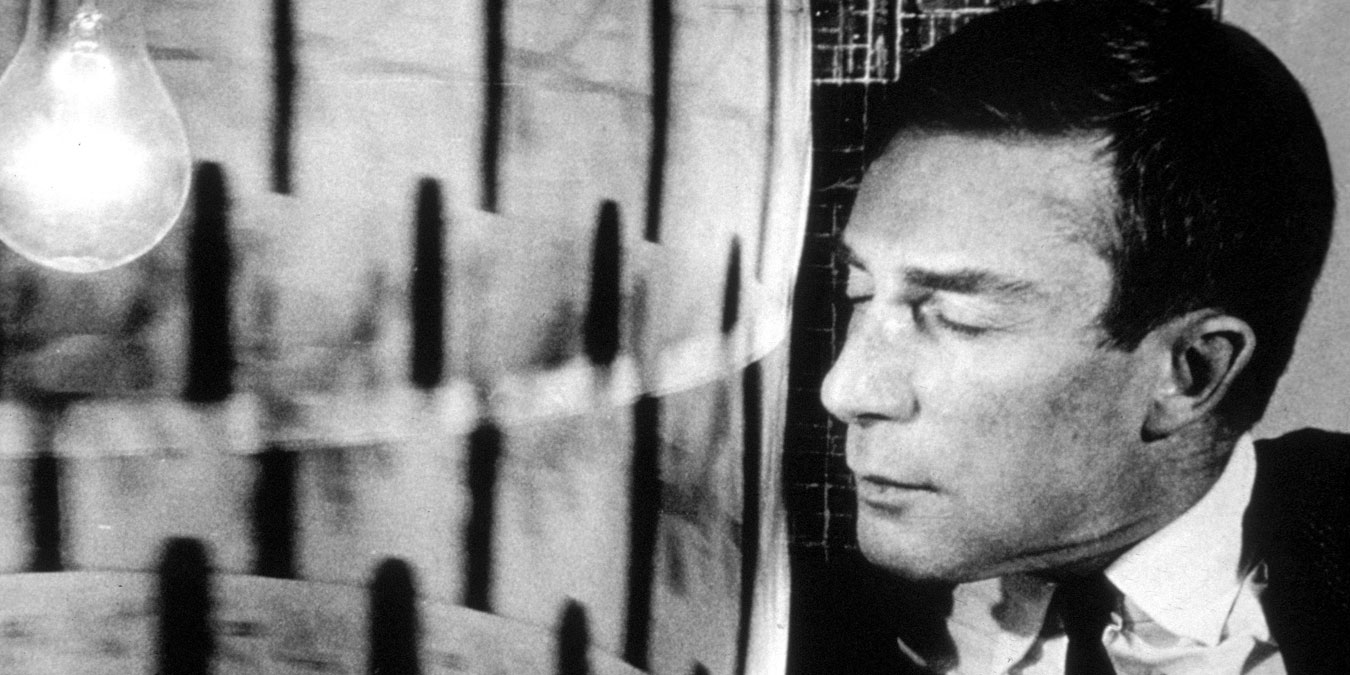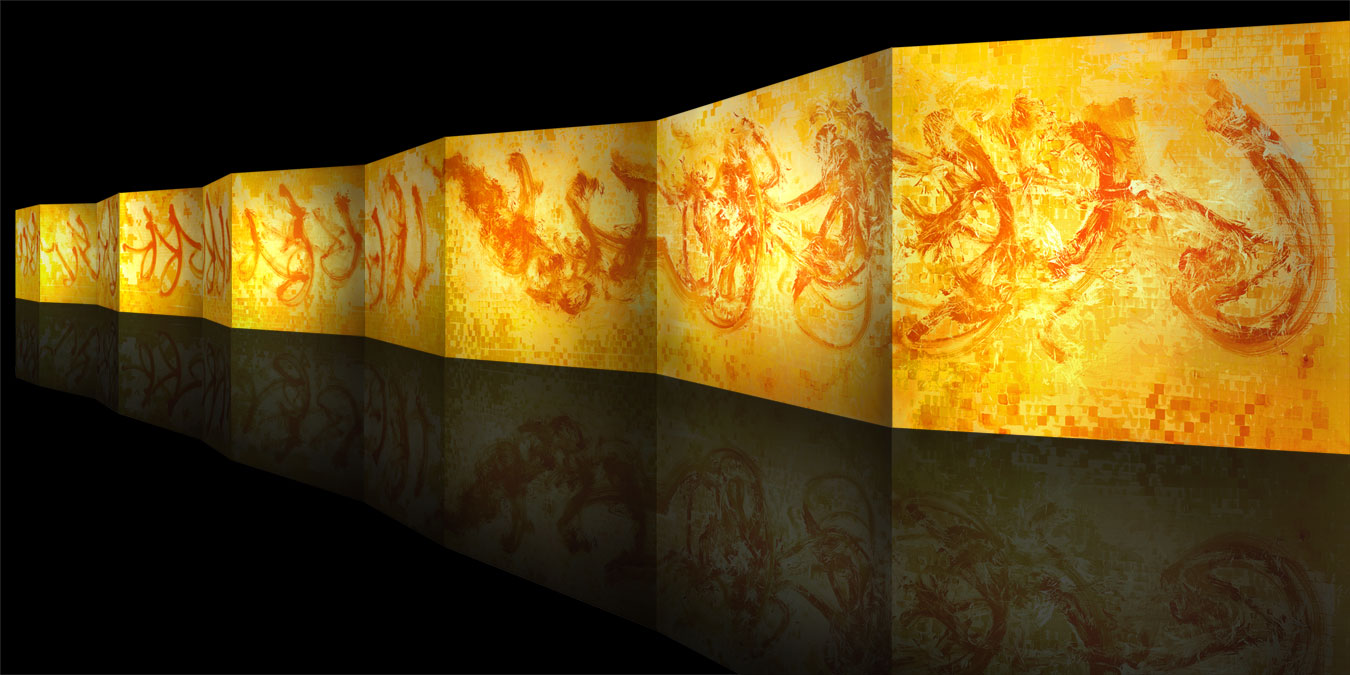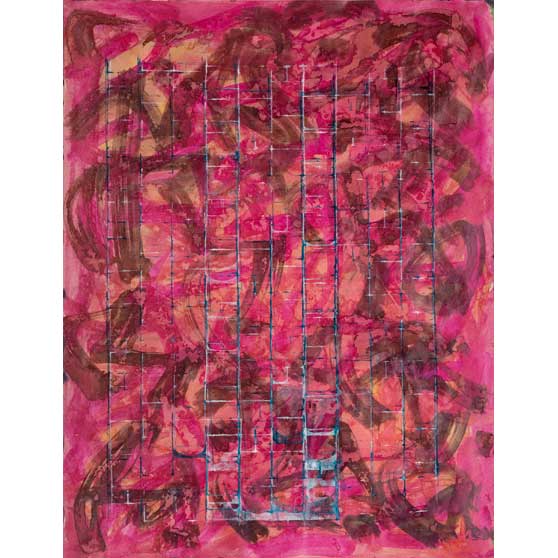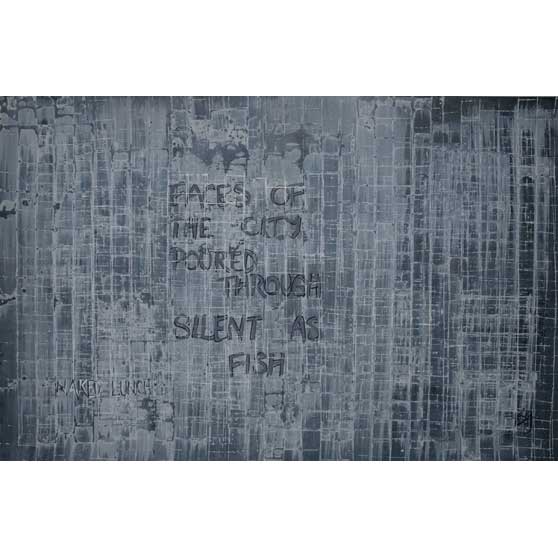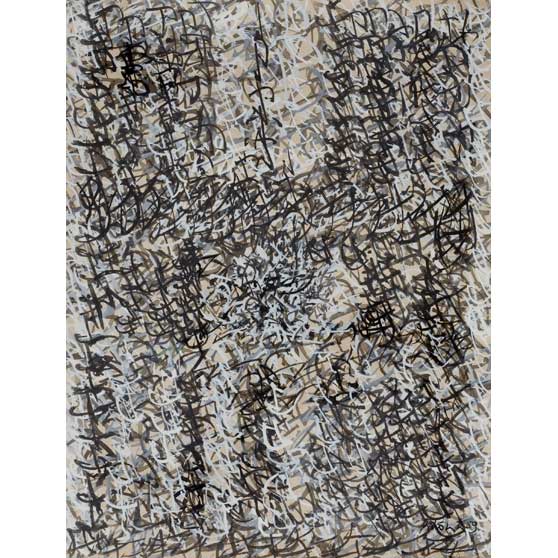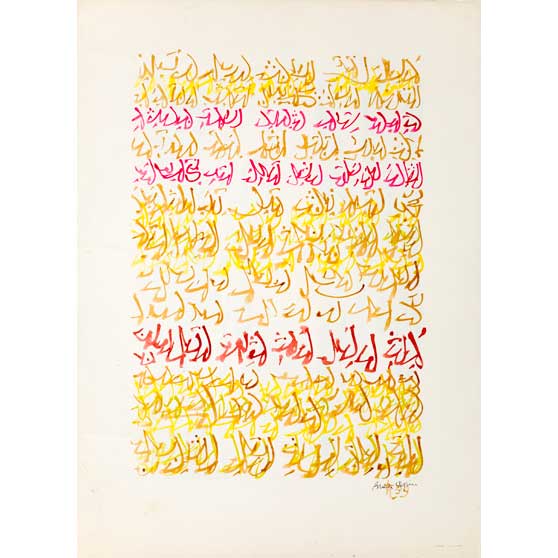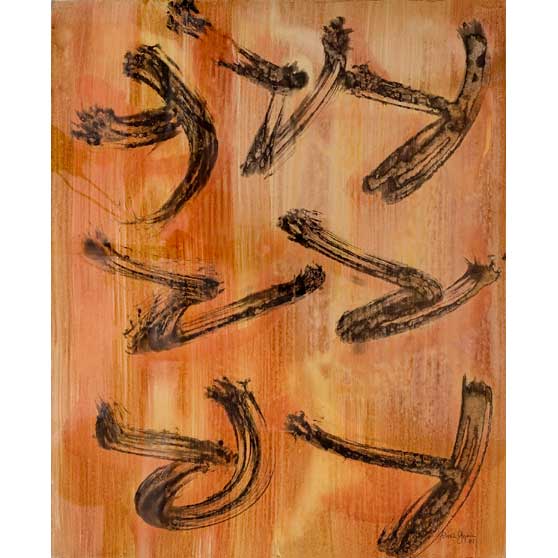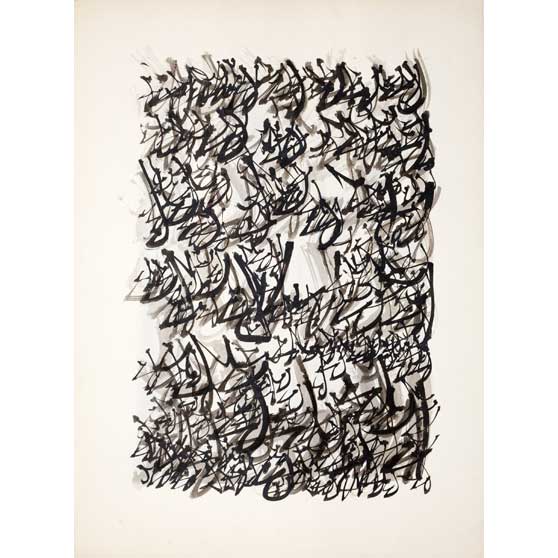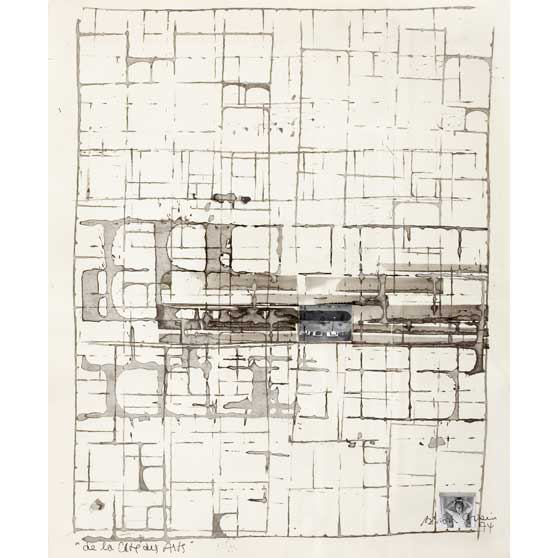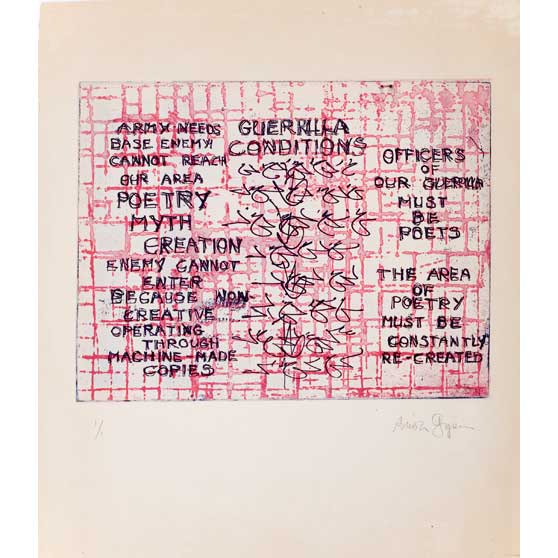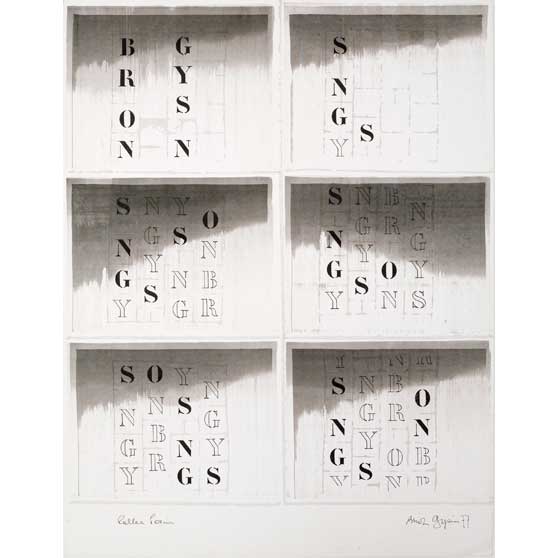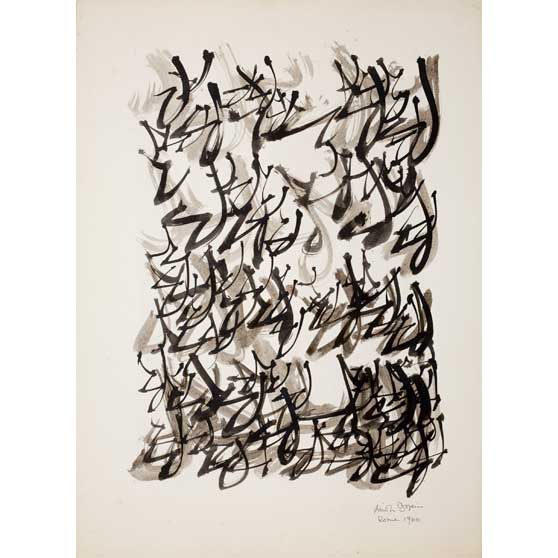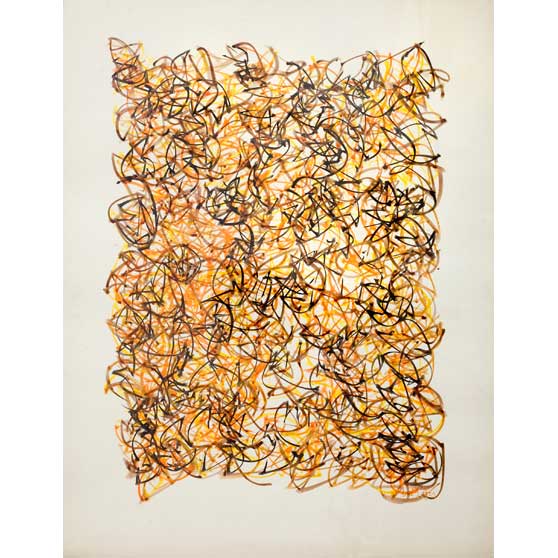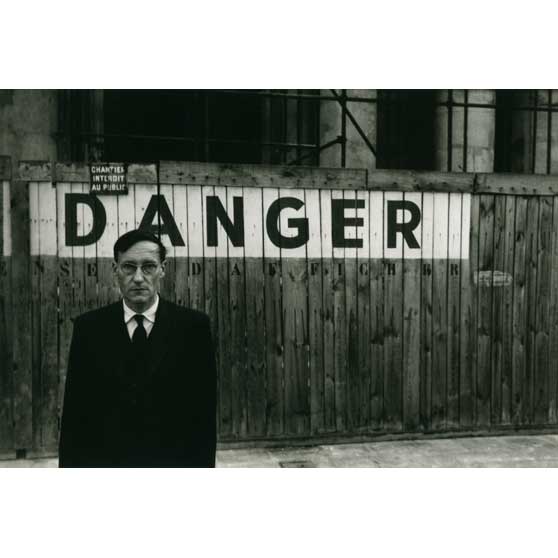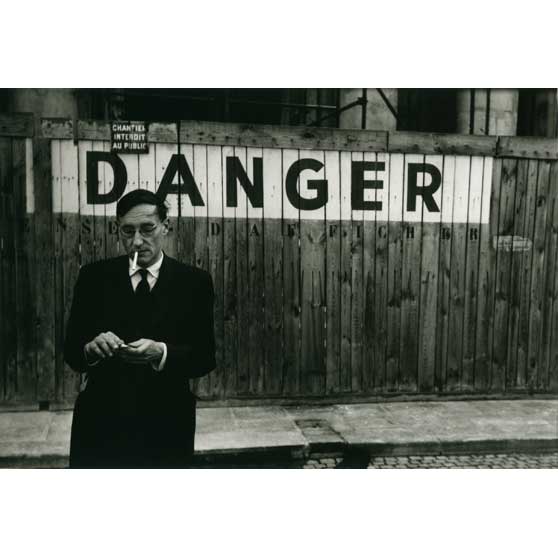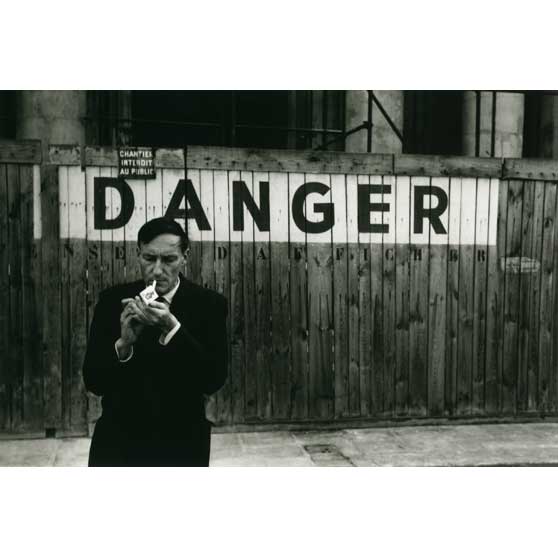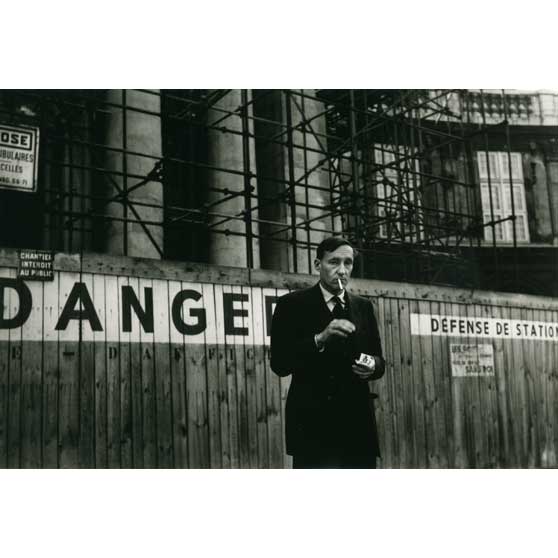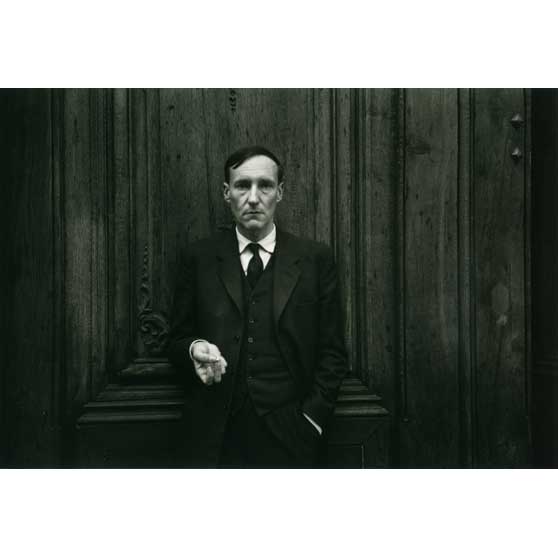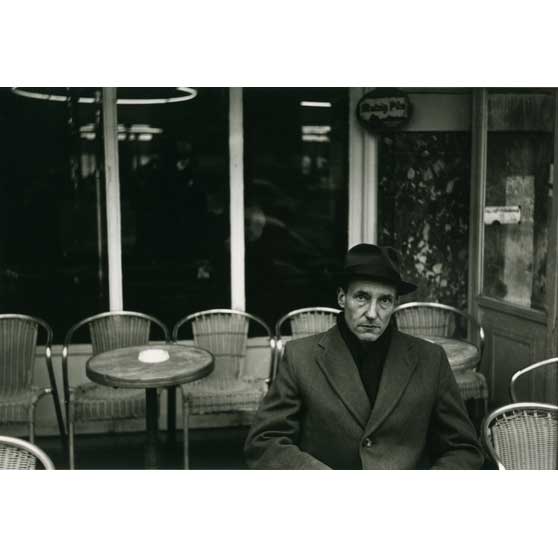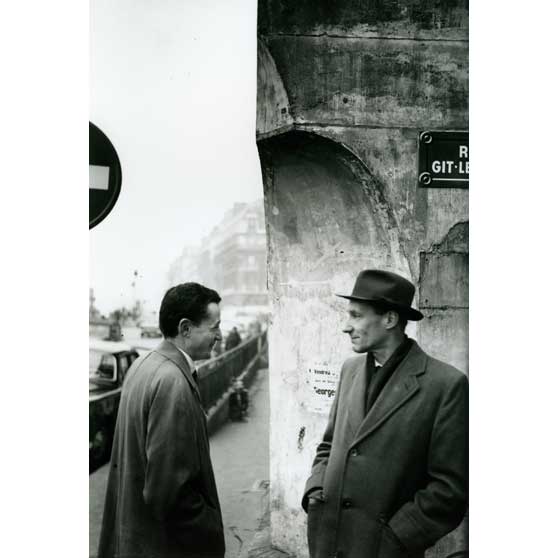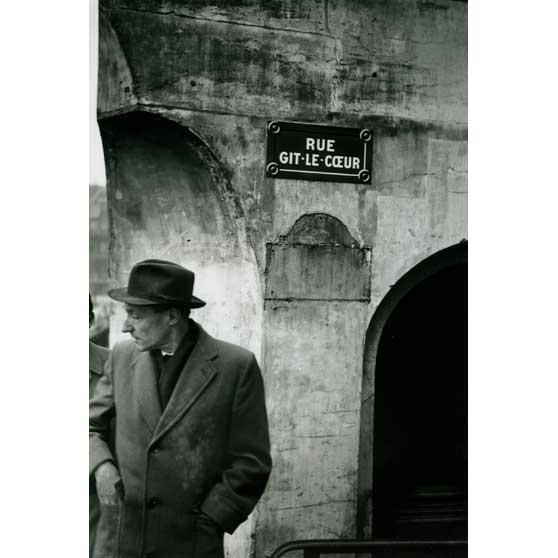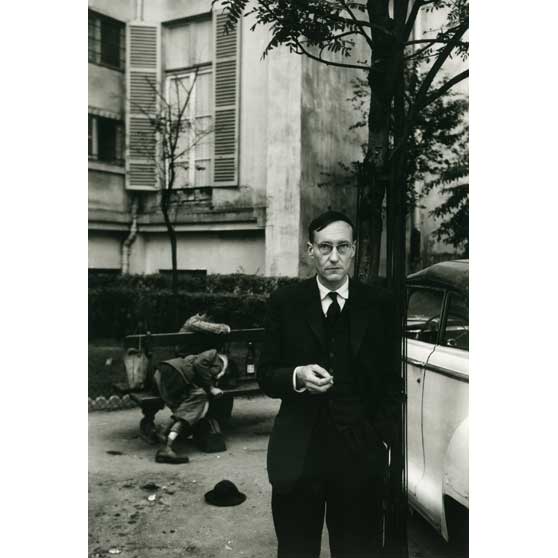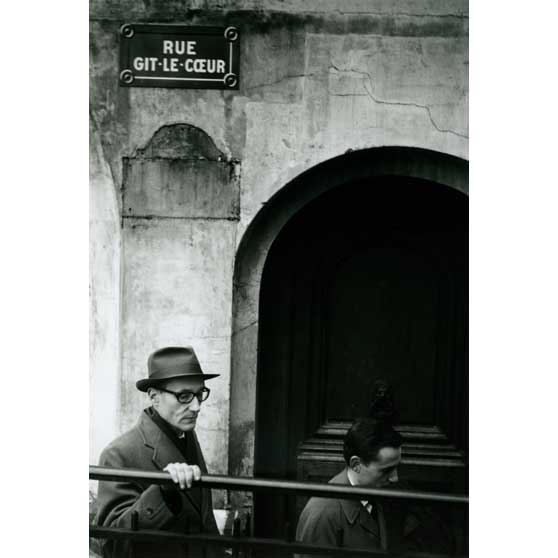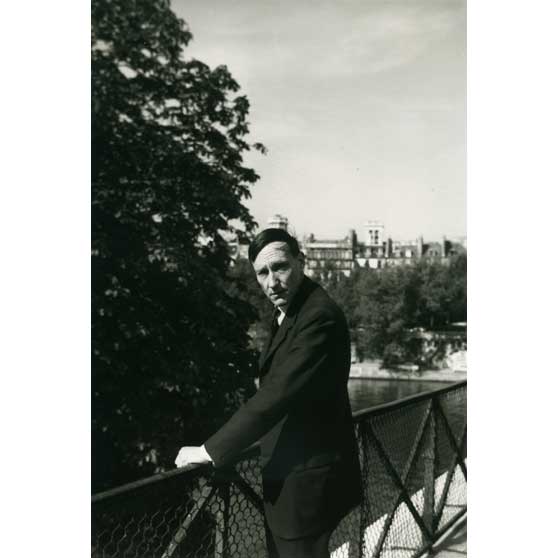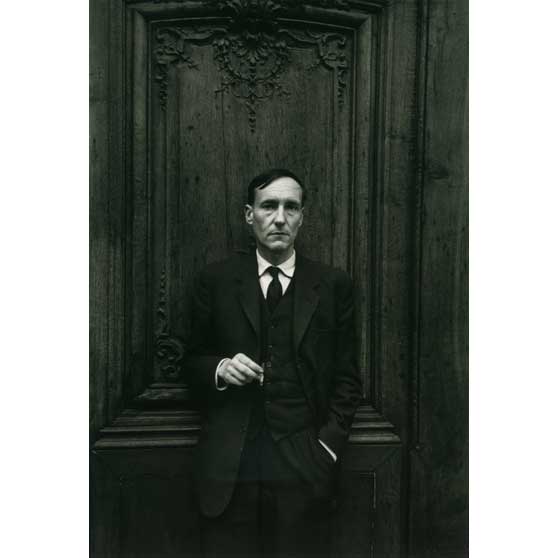BRION GYSIN: Calligraffiti of Fire
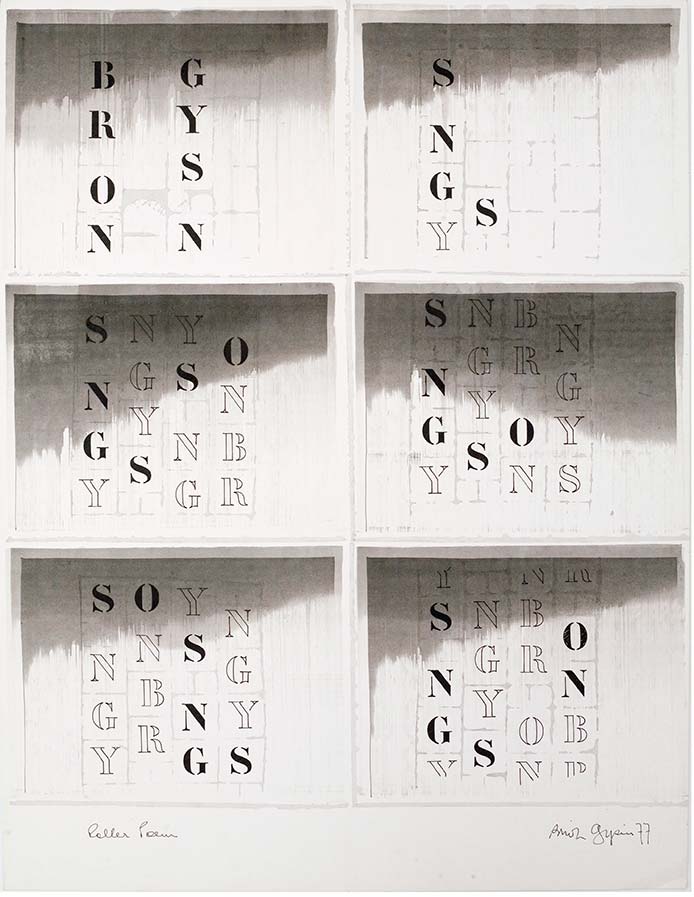
Chinese ink on paper, 65 x 50 cm.
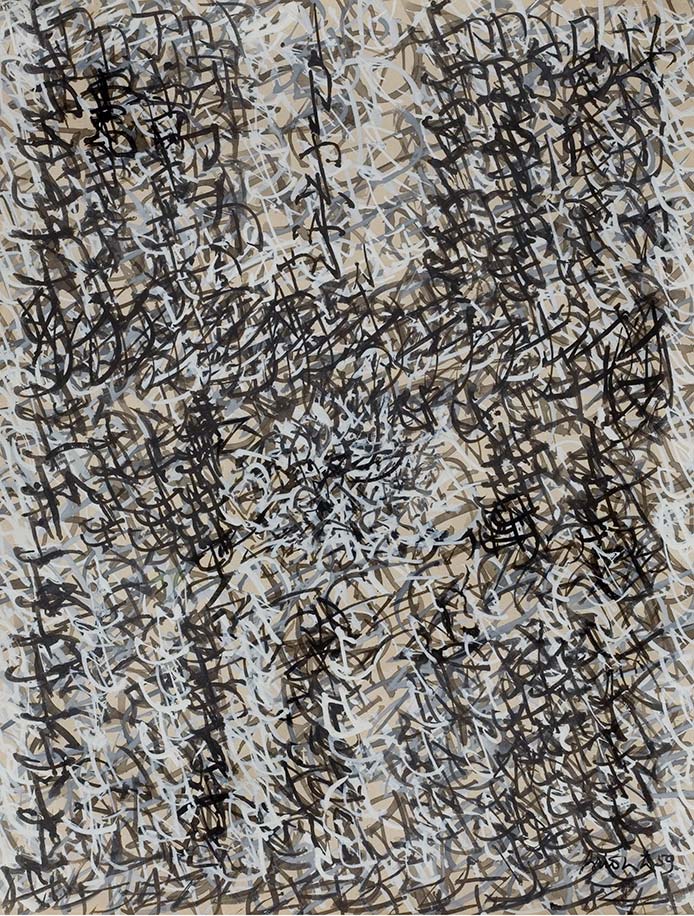
Gouache on paper, signed with rare form of artist's signature, 34 x 26 cm.
Featuring the first UK showing of Gysin's rarely-seen painting, the 16.4 metre-long Calligraffiti of Fire, his magnum opus and final work.
Gysin (1916-1986) had a lifelong fascination with the juncture of word and image, and Calligraffiti of Fire (1985) is the culmination of a long series of works inspired by hieroglyphics and calligraphy. He studied Japanese and Arabic calligraphy, and evolved his own style of word/image glyphs, supple as flames or tendrils of smoke. Calligraffiti of Fire embodies Gysin's explorations of his inner visions through the 'flicker' effect, and permutations of his personal calligraphic signature. The painting is meant to be 'read' from right to left.
The show also includes a working Dreamachine fabricated to Gysin's specifications, as well as Gysin's paintings and drawings, and photographs by Gysin, William Burroughs, Ira Cohen and others. The exhibition runs concurrently with Royal Academy's Burroughs Live (GSK Contemporary), Riflemaker's Life File, featuring Burroughs' illustrated private files, and Maggs Rare Books' show of Barry Miles' collection of Burroughs and Gysin photographs.
A radical cultural visionary, visual artist, writer and performer, Gysin introduced his lifelong friend, writer William S. Burroughs, to the techniques of "cut-ups" and "permutation". Together, they experimented in sound and image, using collage, tape recorder, light painting, writing and film. Their work has had a pervasive influence in the arts and on underground and popular culture, affecting figures such as David Bowie, Patti Smith, Genesis P. Orridge, Keith Haring, Michael Stipe, and Bill Laswell.
In the '60's, Gysin created the Dreamachine, which he described as "the only work of art designed to be seen with closed eyes" and a "drugless psychedelic experience". The Dreamachine rotates and through a flicker effect, evokes brainwaves which can produce spontaneous waking dreams. Gysin said, "...it gives an extended vision of one's own interior capacities, which could also be overwhelming." It was his point of view that those "interior capacities" are the next art form, superceding painting.
Gysin's works are in the collections of the Museum of Modern Art, New York, Museum of Fine Arts, Boston, Centre George Pompidou, Musée d'Art Moderne de la Ville de Paris and numerous private collections. October Gallery first showed Gysin's work in 1981.
Calligraffiti of Fire is curated by Kathelin Gray, and produced in collaboration with The Academy of Everything is Possible. For further information on Brion see www.briongysin.com



